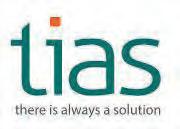INTERNATIONAL BUSINESS
“Antea International Business” is a quarterly publication comprised of contributions from colleagues around the world. The newsletter includes country-focused articles, international tax cases, and technical updates on various topics that impact businesses. The experts at Antea possess the knowledge and experience to assist you on your journey, and this issue can serve as the starting point for your inquiries.

Some of the features of this edition include: Collective dismissals rules in the Czech Republic, a detailed recap of the Employment contracts with expats in Ukraine and an overview of the Nigerian market and some strategies to run effective accounting practices.
We hope you find the contents of this newsletter useful and informative. Happy reading!
www.antea-int.com
20 23 Newsletter August
Index
Belgium
The Van der Elst Exemption: Facilitating International Employment
Chile
Tax treaty between United States and Chile has been ratified


Colombia

Artificial intelligence, a tool for accounting firms
Cyprus
Cyprus Companies Residency
Czech Republic
Collective dismissals rules in the Czech Republic
Ecuador


The Organic Law for the Strengthening of the Family Economy in Ecuador: A real improvement or a political patch?
Egypt
Updates to the Tax law in Egypt

Germany
Poland
CIT tax reliefs in Poland – that’s worth knowing


more
more
E-commerce of third country enterprises in Germany



India
Taxation of short-Term capital gain (STCG)
India


more
The Implications of BEPS 2.0: A New Era in Global Taxation
Italy
Fiscal treatment in Italy of crypto-currency for natural person

Malta
Introduction of Transfer Pricing Rules
Mexico

Doing business in Mexico
Nigeria

Smart Strategies for International Companies Expanding to Nigeria: Outsourcing Your Accounting Department
Spain
What taxes do I have to pay if I own a property in Spain?
more
Thailand
Thailand’s Carbon Credit Policy: The Push for Business Collateral

The Netherlands

The Unified Patent Court - The Hague
Turkey
Are Foreign Investors in Turkey happy with the Dollar’s Increase?

United Arab Emirates

Unemployment Insurance Scheme Article
Ukraine

2 INTERNATIONAL BUSINESS Newsletter August
info
info
info more info
info
info
more
more
more
more
more
info
info
info
info
info more info
more
more
more
info
info
info
info
info
info
info
info
Employment contracts with expats in Ukraine info
more
more
more
more
more
more
more
The Van der Elst Exemption: Facilitating International Employment
In an increasingly globalized world, the free movement of labor across borders has become a crucial aspect of international business operations. Companies often need to deploy their employees to other countries temporarily to provide services or complete projects. However, navigating the complex web of work permit requirements can be daunting and time-consuming. Fortunately, the Van der Elst exemption provides a valuable solution by streamlining the process for international employment.
1. The Van der Elst exemption takes its name from a landmark decision made by the European Court of Justice in 1994 in the case of S.A. Van der Elst v. Office des Migrations Internationales. Mr. Van der Elst, a Dutch national, was employed by a Dutch company but was temporarily assigned to work in Belgium. The Belgian authorities refused to grant him a work permit, claiming that he did not meet the necessary requirements. However, the European Court of Justice ruled in favor of Mr. Van der Elst, establishing the principle that companies can temporarily post their employees to another EU Member State without the need for a work permit.
2. The Van der Elst exemption is based on the fundamental principles of freedom of establishment and freedom to provide services within the European Union. According to the European Court of Justice ruling, if a company is established in one EU Member State and legally employs individuals in that country, it has the right to temporarily assign those employees to
another EU Member State without requiring additional work permits. This exemption applies to both EU and European Economic Area (EEA) nationals.
3. The Van der Elst exemption provides significant advantages for companies engaged in international business activities. By eliminating the need for additional work permits, it simplifies and expedites the process of deploying employees across borders. This exemption reduces administrative burdens and costs associated with obtaining work permits, enabling companies to respond quickly to business opportunities and efficiently allocate their workforce where needed. It also promotes intra-company mobility and facilitates knowledge transfer between different branches or subsidiaries.
4. Employees also benefit from the Van der Elst exemption. It allows them to gain valuable international work experience, broaden their professional skills, and enhance their career prospects. Employees posted under this exemption can enjoy the same employment rights and conditions as provided by the host country’s labor laws. This includes protection under national employment laws, social security coverage, and access to public services such as healthcare. Additionally, the exemption prevents potential discrimination against employees based on nationality, ensuring equal treatment within the European Union.
5. However, while the Van der Elst exemption eases the process of international employment, there are some limitations and considerations to keep in mind.
First, the exemption only applies to temporary postings, typically not exceeding a few years. Permanent or longterm employment still requires obtaining the necessary work permits.
Second, it is essential for both companies and employees to comply with the relevant laws and regulations of the host country, including tax obligations and social security contributions.
Lastly, the Van der Elst exemption is specific to the European Union and EEA countries and does not apply to employment outside of this scope.
Steven De Grave steven.degrave@degroote-deman.be Belgium


3 INTERNATIONAL BUSINESS Newsletter August
Tax treaty between United States and Chile has been ratified

On June 22, 2023, the U.S. Senate approved the Double Taxation Avoidance Treaty between Chile and the United States. The entry into force of this DTA contemplates different benefits that encourage investment flows and the development of cross-border activities between both countries.
The following are the main features:
1. Dividends: dividends paid by a U.S. resident company to a Chilean resident could qualify for 5% or 15% rate limitations, which is an important benefit compared to the general rate of 30% (USA) or 35% (Chile).

2. Capital Gains: Currently, when a US resident entity obtains capital gains derived from the sale of shares or rights in a Chilean company, it is taxed at WHT 35% in Chile. The CDT would allow access to a 16% rate limitation for this type of gains.
3. Royalties: The CDT also establishes limitations to the WHT applicable to the payment of royalties (remuneration for the use or right to use intellectual or industrial property) by a resident of one country to a resident of the other country. Thus, the rates would be limited to 2% or 10%, depending on the type of right for which the royalty is paid.
4. Interest: As a general rule, interest paid by a Chilean resident debtor to a U.S. resident creditor is subject to Withholding Tax (WHT) of 35% in Chile. On the other hand, when the debtor is a U.S. resident and the creditor is a Chilean resident, the general rate is 30%.
The CDT allows access to a WHT rate limitation of up to 15% for the first five years of its term, and then it
would be 10%, encouraging debt financing between both countries. There is also a preferential rate of 4% for some companies such as banks, insurance companies, financial or credit institutions that meet certain requirements.
5. Payment for Services (Business Benefits): Nonapplication of WHT. The payment for cross-border services could be subject to income tax only in the country of residence of the provider.
This Agreement will strengthen Chile in its constant economic opening with the world, which together with several other signed Agreements, has become a very attractive economic and investment attraction in South America.
Javier Molina javier.molina@auren.cl
Chile
4 INTERNATIONAL BUSINESS Newsletter August
Artificial intelligence, a tool for accounting firms
Currently, due to technological advances, audit firms must prepare to provide accounting, auditing, business valuation, due diligence, tax, legal advice, and other corporate services using Artificial Intelligence (AI).
Artificial intelligence, a discussed topic lately, is the ability of computer systems to perform tasks using algorithms that allow them to process information. In the accounting profession, AI must become an ally and not be seen as an enemy that will crowd out human resources. This novelty, as many technological tools were, will be the way to satisfy customers and improve management capacity at work without losing the quality of analysis that humans offer.
Although there is fear regarding the scope of artificial intelligence, for the accounting sector, this represents a complementary tool by streamlining tasks and granting greater efficiency. For this, audit and accounting companies must have trained personnel in the use of AI and emerging technological tools, with the aim of integrating them into the services provided. In this way, companies will be able to improve data analysis processes, which is often a critical point; analyze large volumes of data in real time, an action that means efficiency and speed in decision-making, and perform predictive analysis, a factor that helps predict trends and changes in the market, which is valuable for clients.
In conclusion, AI is an opportunity for audit companies to improve the quality of the services provided, reduce certain processes’ time and cost, and maximize decision
making. The right combination of technology and human capital can lead audit companies to success. As accounting professionals, we should not be afraid of technical advances, but make them part of our services, at the end we are the ones who manage them.
 Cesar Angulo gerencia@auren.com.co Colombia
Cesar Angulo gerencia@auren.com.co Colombia

5 INTERNATIONAL BUSINESS Newsletter August
Cyprus Companies Residency

Under the Cyprus Tax Laws, as from the 31st of December 2022 an important change applies to the Residency of Cyprus Companies.
The Income Tax Law 118(I)/2002, has been amended by the Law 193(I)/2021 which states that a company that is established and/or registered in Cyprus based on a Law in force will be considered as residents of Cyprus and are liable to Cyprus Taxation on all its income, even if the management and control of the company is exercised outside the Republic. This will not apply in the case of the company is a tax resident in another country.
Therefore, this is considered as the Incorporation Rule, related to the residency of the companies as from the 31st of December 2022 and all companies are considered as tax residents of Cyprus by default, unless they fall in the exceptions.
The two exceptions concerning the above provision and amendment is when the company is managed and controlled from abroad and when a company is tax resident of another country.
The management and control of a company is exercised by its board of directors in its day-to-day operations. The residency of the Shareholder is irrelevant and does not affect the tax residency of a company.
Further to the above, concerning foreign registered companies the central management and control test applies to be able to identify if a foreign company is liable to taxation in Cyprus.

All companies, wherever they have been registered, are considered as residents of Cyprus and are taxed on their worldwide income, accrued or arising from sources in Cyprus and/or abroad.
As per the above provisions of the Income Tax Law, a company needs to check the below:
If it is incorporated in Cyprus, it is considered as a resident of Cyprus, the incorporation rule applies as already mentioned above, and it is subject to Cyprus taxation..
If it is incorporated outside Cyprus but its management and control is in Cyprus, then it is resident of Cyprus, subject to Cyprus taxation and needs to pay taxes in Cyprus.
If it is incorporated in Cyprus with management and control outside Cyprus, as from 3.12.2022, it is resident of Cyprus and liable to taxes, unless the company is tax resident in any other country and pays taxes abroad.
In case a company has dual residency then issues may arise, but in such cases, if a Double Tax treaty exists between the two countries, then the company will be taxed in the country where the management and control is done to avoid been taxed twice. In the case where there is no Double Tax Treaty in force between the related countries, the company will be tax resident as per the applicable laws of each country where the management and control is exercised. If the laws of the two countries have conflicting rules as to this issue, then there might be a state dispute as to where the company is tax resident.
Andri Christodoulou andri.christodoulou@zathea.com.cy Cyprus

6 INTERNATIONAL BUSINESS Newsletter August
Collective dismissals rules in the Czech Republic
Definition
Under Czech law, collective dismissals refer to a situation of the termination of employment relationships by one employer within a period of 30 calendar days on the basis of notice given for specified reasons to no less than

• 10 employees in case of employer employing from 20 to 100 employees;

• 10% of employees in case of employer employing from 101 to 300 employees; or
• 30 employees in case of employer employing more than 300 employees.
Where employment relationships of at least five employees are terminated under the above-mentioned conditions, the total number of employees shall also include those employees with whom the employer terminated their employment relationship by termination agreement.
=> The collective dismissals rules are only applicable for the employers with 20 and more employees and only if the termination of the employment relationships takes place during 30-day period. To avoid the collective dismissals procedure, the employer may terminate employment relationships within a longer period.
In case of collective dismissals, the notice may be given only for the following reasons:
a. if the employer ’s undertaking, or its part, is closed down;
b. if the employer ’s undertaking, or its part, relocates;
c. if the employee becomes redundant owing to the decision of the employer or the employer’s competent body to change the activities (tasks), technical equipment, to reduce the number of employees for the purpose of increasing labour productivity (efficiency) or to introduce other organizational changes (restructuring).
Termination protection
The employer cannot give notice to an employee during the protection period.
• For the above-mentioned termination reason b), the protection period means: pregnancy, maternity leave, paternal leave or parental leave (max. until the child reaches 4 years of age).
• For the above-mentioned termination reason c), the protection period means: pregnancy, maternity leave, paternal leave or parental leave (max. until the child reaches 4 years of age), period of ordered quarantine or while an employee is recognized to be temporarily unfit for work, military exercises or service, public function and some other situations specified by the Labour Code.
7 INTERNATIONAL BUSINESS Newsletter August
Timeline - if there is a trade union organization and a works council
The employer must inform the trade union organization and the works council in writing regarding:
a. the intention to give notices of termination;
b. the reasons for collective dismissals;
c. the number and professional qualifications of the employees to be made redundant;
d. the number and professional qualifications of all employees employed by the employer;
e. the period within which collective dismissals are planned to take place;
f. the criteria proposed for selecting employees to be made redundant;
g. severance pay and other rights of the employees being made redundant.
The Employer must notify the trade union organization and the works council at least 30 days before the notices of termination are given.
Consultations with the trade union organization and the works council must be held to reach an agreement, in particular on:
a. the measures aimed at prevention or reduction of collective dismissals;
b. the mitigation of the adverse implications for the employees;
c. the possibility of placement of employees in suitable jobs at other employer’s workplaces.
Written report on the results of the consultation must be sent to the employment authority (see Step 4).
The employer must notify the employment authority of the collective dismissals and related measures, in particular of:
a. the reasons for collective dismissals;
b. the total number of employees;
c. the number and professional structure of employees affected by the collective dismissals;
d. the period within which the collective dismissals will take place;
e. the criteria proposed for the selection of employees to be made redundant;
f. the commencement of consultation with the trade union organization and the works council.
The notification must be made in writing and one counterpart delivered to the trade union organization and works council.
The following document must be delivered by the employer to the employment authority:
• Written report on the employer decision on collective dismissals and on the results of the consultation with the trade union organization and the works council.
The written report must also specify total number of employees and the number and professional structure of employees affected by the collective dismissals. One counterpart of the report must be delivered to the trade union organization and the works council. They have the right to give each its opinion on the employer’s written report and deliver it to the employment authority.
The employer must inform the employees affected by collective dismissals of the day of the delivery of the report to the employment authority.
Termination notice may only be delivered after 30 days have elapsed since the trade union organization and the works council were notified of the collective dismissals (see Step 1).
The employment relationship of the employee affected by collective dismissals may not terminate before 30 days have elapsed since written report was delivered to the employment authority (see Step 4), unless the employee in question declares that he does not insist on the given time-limit.
8 INTERNATIONAL BUSINESS Newsletter August
Step 1 Day 1 Step 2 Step 3 Step 4 Day X Step 5 Day 1 + min. 30 days Step 6 Day X + min. 30 days
Notifications to trade union organization and works council
Consultations with trade union and works council
Notifying the employment authority about the collective dismissals
Information to the employment authority
Delivery of termination notices
Termination of the employment relationship of the employee affected by collective dismissa
Employment authority = the regional branch of the Labour Office (competent according to the employer’s place of activities)
Timeline - if there is no trade union organization and no works council
Where no trade union organization and no works council has been formed/ operates at the employer’s undertaking, the employer shall fulfil its duties in relation to every employee affected by the collective dismissals.
Employer must inform the employees affected by the collective dismissals in writing regarding:
a. the intention to give notices of termination;
b. the reasons for collective dismissals;
c. the number and professional qualifications of the employees to be made redundant;
d. the number and professional qualifications of all employees employed by the employer;
e. the period within which collective dismissals are planned to take place;
f. the criteria proposed for selecting employees to be made redundant;
g. severance pay and other rights of the employees being made redundant.
The Employer must notify the employees affected by the collective dismissals at least 30 days before the notices of termination are given.
Consultations with the employees affected by the collective dismissals must be held to reach an agreement, in particular on:
a. the measures aimed at prevention or reduction of collective dismissals;
b. the mitigation of the adverse implications for the employees;
c. the possibility of placement of employees in suitable jobs at other employer’s workplaces.
Written report on the results of the consultation must be sent to the employment authority (see Step 4).
The employer must notify the employment authority of the collective dismissals and related measures, in particular of:
a. the reasons for collective dismissals;
b. the total number of employees;
c. the number and professional structure of employees affected by the collective dismissals;
d. the period within which the collective dismissals will take place;
e. the criteria proposed for the selection of employees to be made redundant;
f. the commencement of consultation with the employees affected by the collective dismissals.
The notification must be made in writing and one counterpart delivered to the employees affected by the collective dismissals.
The following document must be delivered by the employer to the employment authority:
• Written report on the employer decision on collective dismissals and on the results of the consultation with the employees affected by the collective dismissals. The written report must also specify total number of employees and the number and professional structure of employees affected by the collective dismissals. One counterpart of the report must be delivered to the employees affected by the collective dismissals.
The employer must inform the employees affected by collective dismissals of the day of the delivery of the report to the employment authority.
Termination notice may only be delivered after 30 days have elapsed since the employees affected by the collective dismissals were notified of the collective dismissals (see Step 1).
The employment relationship of the employee affected by collective dismissals may not terminate before 30 days have elapsed since written report was delivered to the employment authority (see Step 4), unless the employee in question declares that he does not insist on the given time-limit.
9 INTERNATIONAL BUSINESS Newsletter August
Step 1 Day 1 Step 2 Step 3 Step 4 Day X Step 5 Day 1 + min. 30 days Step 6 Day X + min. 30 days Notifications Consultations Notifying the employment authority about the collective dismissals Information to the employment authority Delivery of termination notices Termination of the employment relationship of the employee affected by collective dismissals
Employment authority = the regional branch of the Labour Office (competent according to the employer’s place of activities)
Related issues
Notice period – special rules in relation to the protection period

In case of notice of termination given to an employee before the start of the protection period, special rules apply. The protection period shall not be included in the notice period and the employment relationship shall terminate only upon the expiry of the remaining part of the notice period after the end of the protection period unless the employee in question informs his employer that he does not insist on the given prolongation.
Collective agreements
When preparing the collective dismissals, the employer shall always get familiar with the collective agreements (if any) and their provisions relating to the collective dismissals or related issues.

Insolvency
Some specific rules/exceptions apply for collective dismissals procedure if an insolvency order pursuant to Act No. 182/2006 Coll., Insolvency Act, as amended, has been made against an employer.
Severance pay
The employees are entitled to receive severance pay (redundancy payment) at least in the amount equal to:
a. 1 average monthly earnings if an employment relationship to the employer lasted less than one year;
b. 2 average monthly earnings if an employment relationship to the employer lasted at least one year and less than two years;
c. 3 average monthly earnings if an employment relationship to the employer lasted at least two years;
d. 3 average monthly earnings + the amounts laid down
in (a) to (c) if an employment relationship is terminated in a period when the employee is subject to a working hours account and to the procedure pursuant to section 86(4) of the Labour Code.
A period of an employment relationship shall also include employee’s preceding employment relationship to the same employer provided that the time between the termination until the commencement of the subsequent employment relationship did not exceed 6 months.
Kristýna Hájková kristyna.hajkova@burilpartners.cz Czech Republic
10 INTERNATIONAL BUSINESS Newsletter August
The Organic Law for the Strengthening of the Family Economy in Ecuador: A real improvement or a political patch?

In Ecuador, the Organic Law for the Strengthening of the Family Economy was recently approved by Executive Decree published on June 20, 2023. This law came into force after the approval of the Constitutional Court, which gave its approval to the economic urgency alleged by the government to legislate through Executive Decrees, as a consequence of the declaration of “cross death” and the early termination of the National Assembly period.
The approved law deals with three main issues: the deduction of personal expenses for individuals, a single income tax for sports betting operators, and reforms to the Simplified Regime for Entrepreneurs and Popular Businesses - RIMPE.
This law again allows the deduction of personal expenses and reduces the income tax for individuals, after this deduction of personal expenses was repealed by the same government that is now putting them back into effect, just a year and a half ago, in 2021. The bill issued in 2021 affected mainly the middle class, and among them, people working as employees, due to the effect of the withholding at source of income tax.
It has been presented as an initiative to alleviate the economic burden on families and promote the country’s growth. However, it is crucial to carefully examine its scope and consider whether this law really represents a significant improvement or whether it is a mere political patch to ingratiate itself with the middle class that was the most affected by the repeal of the personal expense deduction. Little is also said about the great opportunity
that the government has lost to, through this decreelaw, and in the absence of the legislative body that was so much questioned during this period, achieve a more profound tax reform that could rationalize the tax system in the country, which is so badly needed.
One of the most outstanding measures of this law is the possibility given to individuals to deduct from their income tax personal expenses, understood as those incurred within the country for clothing, education, food and health (including those of pets), rent or interest payments for the purchase of housing, alimony payments, domestic tourism in registered establishments and with a single annual operating license, and art and culture.
The calculation of the value to be deducted for this concept is directly related to the value of the basic food basket, which in the year 2023 is USD 767. Thus, a natural person who has no family responsibilities may declare personal expenses up to USD 5369 (767 x 7), and of this value, the deductible amount corresponds to 18%, i.e. USD 966.42. The limit calculated on the family basket varies in relation to the family expenses, from 9 baskets up to 20 when there are five or more expenses, or when there is a person with a disability or catastrophic illness.
For purposes of this deduction, the law considers parents, spouse or common-law partner and children up to 21 years of age or disabled of any age, as long as they do not receive taxable income and are dependents of the taxpayer, to be family dependents.

In conclusion, the reform issued by Decree-Law will alleviate the tax burden of families, especially considering the importance of the State to support families that have members with disabilities or catastrophic diseases, however, it is a reform that was presented, in our opinion, in a rushed manner, as an amendment to the reform made by this same government in the year 2021, which eliminated the possibility of deducting personal expenses, but which does not take advantage of the crucial moment the country is going through, in which there is no National Assembly, to achieve a tax reform that modernizes the tax system and rationalizes it, providing it with greater progressiveness, generality and sufficiency of tax collection.
Gabriela Larreategui gabriela.larreategui@abcglobal.tax Ecuador
11 INTERNATIONAL BUSINESS Newsletter August
Updates to the Tax law in Egypt
Law no.30 year 2023, updating articles in the Income Tax law no. 91 2005
June 2023
Introduction
Law no.30 year 2023 was issued in 15 June 2023, updating articles in the Income Tax law no. 91 2005. New updates are applicable starting 16 June 2023 except for Individual’s temporary employment article which will be applicable starting January 2024.
The main objective of the Egyptian government is to comply with the BEPS reporting to enhance the economic situation and comply with the IMF guidelines.
Egypt is running to issue and fix new tax rules addressing the main IMF goals which covers the following financial objectives:
• Implementation of the Transfer Pricing guidelines which actively put in place by Egypt in 2018.

• More controls on Tax Evasion.
• Controlling the misuse of the international tax treaties.
• Enhancing the mechanism of the International arbitrations.
Executive regulations will be issued soon to clarify the mechanism of the updates’ implementation.
Permanent Establishment (PE)
• Definition of the permanent establishment is extended to include projects or services become resident for more than 90 days in the past 12 months.
Also, excluded PEs if the only purpose to retain inventory in the country.
• Adding “Civil Company” as a new definition to company’s types which identified if established under civil law or any other laws rather than company’s law. The tax treatment is similar to partnerships.
Related Parties definitions
• Previous definition included predefined set of related parties’ examples such as spouses, siblings, controlling interest of 50%, joint ventures and partnerships.
• New definition became wider matching the accounting definition, including if the relationship between parties may affect directly or indirectly the transactions for tax purposes. Also, if party or third party has control or significant influence on the other party.
• Purpose of wider inclusion is to avoid transferring profits or avoiding paying Egyptian taxes between resident and non-resident parties.
• Clarifying the definition of the “Reality Company type” to exclude inherited individual company making sure inherited quotas are reported and in just One tax return
Corporate Income Taxes
• In General, no changes in the corporate tax Rate of 22.5%. All changes in rates are related to individual’s taxes.
• Gradually reducing the approved interest expense limited to the debt/equity ratio (capitalization ratio *) to 2:1 by FY28 as follows:
• Current applicable ratio 4:1
• FY24 to FY27 ratio will be 3:1
• Starting year FY28 ratio 2:1
• Withholding Tax 20% of interest paid on loans provided from sources outside Egypt. That is applicable on loans provided after 16 June 2023 or before that date and settled after 16 June (Previously if loan was more than 3 years, interest was exempted).
• Only Electronic invoices and receipts are now legally required to support costs in the tax returns. Tax incentive of no more than 5% of the tax due (more details will be controlled by the Finance minister decree).
Capital Gains Taxes “CGT”
• Non-residents should report realized gains and pay CGT in Egypt within 60 days from the transaction date.
• Share to Share Exchange is not taxable between listed entity and non-listed entity. Subsequent sale, the original cost before exchange will be the tax basis for the capital gain calculation. CGT rate will then be 10% for listed entities and 22.5% for non-listed entities.
• Dropping the CGT on Listed shares and bonds for the period from January 2022 till 15 June 2023. Capital
* Capitalization ratio = (beg Equity + end Equity) / 2 Limited to paid-up capital amount if retained losses exceeds the equity.
12 INTERNATIONAL BUSINESS Newsletter August
gains from sale of listed are due and taxable at 10% after 15 June 2023.
• Postponing the CGT realized by individuals and corporate companies at Initial Public Offering (IPOs) taking the original cost as the tax basis for future subsequent sale transactions.
• Tax incentives on listed shares’ capital gains:
• 50% deduction from capital gains if sale is during the following Two years from 15 June 2023.
• 75% deduction from capital gains if sale is after the following Two years from 15 June 2023.
• Incentive to individual investors by deducting % as a cost from the capital gains equal to central bank interest rate (Considering not to make loss).
Dividends Tax
• Staring 15 June 2023, Dividends Tax on profits/ interest/ dividends received from Investment Funds became subject to 5% if the investor is an individual and 15% if corporate investors.

• Adding Investment Funds established under the Capital Exchange Market law no.95 to the list of Exempted entities from Corporate income tax.
• Allowing to deduct dividends tax paid on received profits from dividends tax withheld from a resident group member.
Individuals’ income tax
Staring 1 July 2023, the following updates to the individuals’ taxes:
• New Income tax rates 27.5% have been added for individuals whose annual income exceeds EGP 1.2 million (around EGP 100,000 monthly).
• Raising the Annual personal exemption amount from EGP9,000 to EGP15,000.
• The zero-rate bracket have been increased from EGP15,000 to EGP21,000.
• Inclusion payroll definition of the “recorded” payroll expense rather than “paid”.
13 INTERNATIONAL BUSINESS Newsletter August
• Starting 1 January 2024, The WHT of 10% of part-time employees will be controlled to ensure employees are subject to normal brackets at their original workplace. Notice to be sent by the Part-time source company to the original source company concerning the part-time employee’s income.
• Professional individuals (with tax IDs) can now deduct paid insurance cost (life or health insurance policies) the lesser of 15% of their net taxable income or EGP10,000 (previously annual limit was only EGP3,000).

Stamp Taxes
• Raising the Entertainment taxes Increase specially on Entertainment tax on over the Parks, Public and Club’s Concerts and shows.
Other incentives
• Allowing small businesses with annual revenues of less than EGP 10 million to be granted a flat-rate tax treatment as per the Development of SMEs Law.
• Providing incentives to any individual who report a tax evasion crime to the Egyptian Tax Authority. The reward set to be 10% of the recovered amount once paid.
Bassem Gaber
bassem.gaber@gaberco.com Egypt

14 INTERNATIONAL BUSINESS Newsletter August
E-commerce of third country enterprises in Germany
Consultancy practice shows that Germany is an attractive gateway for many third country online retailers (led by Swiss enterprises) for expanding their sales markets into other EU Member States.
For a successful expansion within the EU, a prior analysis of the business processes of the expanding enterprise needs to be performed and a sound logistics plan to be drawn up due to the existing complexity of VAT law in order to avoid any VAT risks.
Assuming that a fulfilment centre is used in Germany and that the third country online retailer will sell and distribute goods to its customers within the EU from its German fulfilment centre via its own online shop as well as via the “Amazon” electronic interface, special VAT features need to be taken into account1. A distinction must be made depending on whether a B2B or B2C transaction is involved and via which online portal the customers place their order.
1. Order placed via the retailer’s online shop
Depending on where the delivery chain ended the following VAT consequences arise:
a) for B2B constellations:
Country of destination VAT consequencesReporting obligations
GermanyAssessable and taxable in Germany
EU Member State (not Germany) Assessable in Germany, but exempt from tax, if the conditions of an intraCommunity supply are met
b) for B2C constellations:
VAT return
VAT return, if applicable summary report, if applicable Intrastat report
any responsibility for the transportation is regarded as intraCommunity distance selling. A special feature applies to this form of selling in that the place of delivery of Germany is shifted to the respective EU country of destination when the EU-wide threshold of EUR 10,000 is exceeded (distance selling regulation). As online retailers generally exceed this sales threshold, they must comply with the distance selling regulation, which requires registration for VAT purposes in the country of destination to which the goods are shipped, as the online retailers must pay the local VAT applicable in the country of destination for the goods shipped to the customer.
Country of destination VAT consequences Reporting obligations
Germany Assessable and taxable in Germany

EU Member State (not Germany) Assessable in country of destination*
VAT return
One Stop Shop (OSS) return in Germany, if applicable Intrastat report
* The shipment of goods from Germany to a EU Member State other than Germany to an individual without taking
The One Stop Shop (OSS) procedure is provided in order to avoid having to register numerous times for VAT purposes and having to submit numerous local VAT returns in other EU countries. The third country online retailers therefore have to register with the German Federal Tax Office (Bundeszentralamt für Steuern) in good time before carrying out any intra-Community distance selling.
2. Order placed via an electronic interface
If a customer orders goods from a third country retailer via Amazon without giving a VAT ID number and the goods are to be shipped either within Germany or abroad from Germany to another EU country, this gives rise to a significant difference compared to the statements made in bullet point 1 above:
15 INTERNATIONAL BUSINESS Newsletter August
1 Special features relating to import procedures in Germany are not covered in this article and must be checked prior to a planned expansion within the EU.
Although the purchase is only transacted between the customer and the third country retailer under civil law, a notional chain transaction between the online retailer, Amazon and the customer is assumed for VAT purposes.
As a result of this special VAT feature the online retailer makes a delivery to Amazon and Amazon in turn makes a delivery to the customer. The payment methods are structured accordingly.
Irrespective of what triggers the shipment the delivery of the online retailer to Amazon qualifies without exception as a “dormant” supply, which is assessable where the movement of the goods begins, i.e. in Germany. As a genuine tax exemption (with the possibility of deducting input tax) applies, German VAT is not payable on this notional supply. However, this does not release the retailer from the requirement to report the sale in the German VAT return.

Conclusion: The assessability of the transactions in Germany or the use of the OSS procedure by the third country online retailers require their timely registration in Germany for VAT purposes.

As, depending on the individual case, further types of transactions other than those discussed above may arise as part of the e-commerce business (also not known), it is essential that comprehensive advice be obtained before implementing the EU expansion project in order to avoid significant VAT risks domestically or abroad.
Jerina Kelava Jerina.Kelava@rtg-auren.de Germany
16 INTERNATIONAL BUSINESS Newsletter August
Taxation of short-Term capital gain (STCG)
1. Chargeability of tax on Capital Gain
Gain arising on transfer of capital asset is charged to tax under the head “Capital Gains”.
Income from capital gains is classified as “Short Term Capital Gains” and “Long Term Capital Gains”. In this part you can gain knowledge about the provisions relating to tax on Short Term Capital Gains.
Meaning of Capital Asset Capital asset is defined to include:
a. Any kind of property held by an assessee, whether or not connected with business or profession of the assessee.
b. Any securities held by a FII which has invested in such securities in accordance with the regulations made under the SEBI Act, 1992.
c. Any ULIP to which exemption under section 10(10D) does not apply on account of the applicability of the fourth & fifth proviso thereof.

However, the following items are excluded from the definition of “capital asset”:
1. any stock-in-trade (other than securities referred to in (b) above), consumable stores or raw materials held for the purposes of his business or profession;
2. personal effects, that is, movable property (including wearing apparel and furniture) held for personal use by the taxpayer or any member of his family dependent on him, but excludes—
(a) jewellery; (b) archaeological collections; (c) drawings; (d) paintings; (e) sculptures; or (f) any work of art.
2.
What is short-term capital asset?
Any capital asset held by the taxpayer for a period of not more than 36 months immediately preceding the date of its transfer will be treated as short-term capital asset.
However, in respect of certain assets like shares (equity or preference) which are listed in a recognised stock exchange in India, units of equity oriented mutual funds, listed securities like debentures and Government securities, Units of UTI and Zero-Coupon Bonds, the period of holding to be considered is 12 months instead of 36 months.
3. Taxation on short-term capital gain
For the purpose of determination of tax rate, short- term capital gains are classified as follows:
• Short-term capital gains covered under section 111A.
• Short-term capital gains other than covered under section 111A.
STCG covered under section 111A
Short-Term Capital Gains (STCG) arising on account of sale of equity shares listed in a recognised stock exchange, units of equity oriented mutual fund and units of business trust.
Tax rates on Short-term capital gain
• STCG covered under section 111A is charged to tax @ 15% (plus cess @ 4% and surcharge as applicable).
• Normal STCG, i.e., STCG other than covered under section 111A is charged to tax at normal rate of tax as per applicable slabs which is determined on the basis of the total taxable income of the taxpayer.
4. Adjustment of Short-Term Capital Gain (STCG) against the basic exemption/threshold limit as prescribed under Income Tax Act, 1961
Only a resident individual and resident HUF can adjust the Short-Term Capital Gain (STCG) covered under section 111A against the basic exemption limit but such adjustment is possible only after making adjustment of other income.
In other words, firstly, income other than STCG covered under section 111A is to be adjusted against the exemption limit and then the remaining limit (if any) can be adjusted against STCG covered under section 111A.
5. Deductions under section 80C to 80U of Income Tax Act, 1961 from short term capital gain
No deduction under sections 80C to 80U is allowed while computing the taxable income on short-term capital gains referred to in section 111A.
However, such deductions can be claimed from STCG other than covered under section 111A.
Dr. Vikas S. Chaturvedi vikas@valuecent.com India

17 INTERNATIONAL BUSINESS Newsletter August
The Implications of BEPS 2.0: A New Era in Global Taxation
Introduction: BEPS 2.0 – An Overview
In an era of increasing globalization and digitalization, tax regulations have undergone transformations to keep up with these dynamic changes. Multinational corporations (MNCs) and multinational entities (MNEs) are under increased scrutiny due to their ability to maneuver profits to low-tax jurisdictions, thus minimizing their tax burden. In response to this, the Organisation for Economic Co-operation and Development (OECD) has introduced the Base Erosion and Profit Shifting (BEPS) 2.0 framework, aimed at addressing such profit shifting and tax avoidance practices.
Understanding BEPS 2.0
The BEPS 2.0 framework is a comprehensive and ambitious overhaul of the global tax landscape. It builds on the previous BEPS initiative and introduces two primary pillars: Pillar One and Pillar Two. These pillars aim to ensure that MNCs contribute their fair share of taxes and deter them from shifting profits into low-tax jurisdictions.
Pillar One: Redistributing Taxing Rights
Pillar One focuses on granting taxing rights to the jurisdictions where the MNCs generate their market revenues, irrespective of their physical presence there. This significant change has been driven by the rise of digital businesses which can often have a substantial economic presence in a jurisdiction without a corresponding physical presence. The aim is to align the taxation rights with the location of the users and consumers, ensuring a fair distribution of tax revenues.
Pillar Two: Setting a Global Minimum Tax

Pillar Two complements the first by establishing a global minimum tax rate of 15% on MNCs. It focuses on the jurisdiction where the MNC’s parent company resides, ensuring that the profits are taxed at a minimum effective rate. This pillar aims to eliminate the incentive for MNCs to shift their profits to low-tax jurisdictions.
New International Tax Rules: Tightening the Reins on Tax Avoidance
Under BEPS 2.0, new rules have been proposed to combat tax avoidance more effectively:
Subject to Tax Rule (STTR): The STTR mandates countries to withhold tax on payments made to foreign subsidiaries that aren’t subject to a minimum level of taxation in their home jurisdiction. This rule aims to prevent profit-shifting via intercompany transactions.
Income Inclusion Rule (IIR): The IIR obliges parent companies to include in their taxable income the profits of their low-tax subsidiaries that fall below the 15% tax level. This rule is designed to prevent MNCs from exploiting low-tax jurisdictions.
Undertaxed Payment Rule (UTPR): The UTPR denies deductions for payments made to low-tax subsidiaries if those payments aren’t subject to a minimum 15% tax. This rule provides an additional safeguard against profit-shifting.
Global Anti-Base Erosion (GloBE) Rules: The GloBE rules, which are still being developed, are aimed at ensuring multinational companies pay a minimum tax on global
profits, irrespective of where they’re earned. It is important for multinational enterprises to monitor the progress of the GloBE Rules so that they can ensure compliance and navigate potential challenges
The Role of IFRS in the Global Minimum Tax
As the BEPS 2.0 framework continues to evolve, the International Financial Reporting Standards (IFRS) are playing a significant role, especially in the implementation of the Global Minimum Tax. IFRS will be used to determine the MNE’s taxable profits for the purposes of the GMT
Calculating the Effective Tax Rate (ETR): The IFRS rules are used to calculate the ETR for each jurisdiction where a company operates. If a company’s ETR falls below the minimum rate, a top-up tax is required, ensuring that companies contribute their fair share to tax revenues.
Accounting for Deferred Taxes: The IFRS rules account for deferred taxes, which are taxes owed but not yet paid. By requiring companies to disclose this, investors and other stakeholders gain a better understanding of the tax implications of their investments.
Global outlook on BEPS 2.0:
India’s Catalyst reponsibility:
In a significant nod to the transformative capacity of tax reforms, Mr. JB Mohapatra, the former chairman of the Central Board of Direct Taxes (CBDT), underscored the latent benefits of the Pillar 2 initiative for India’s fiscal landscape. According to Mohapatra, the effective implementation of Pillar 2 could potentially channel a staggering USD 500 billion into India’s
18 INTERNATIONAL BUSINESS Newsletter August
revenue reserves. This assertion brings into sharp focus the monumental effect that the adoption of the GloBE Rules could impose on the country’s financial dynamics. Similarly, India’s stance on the international tax regime was articulated by the Hon’ble Finance Minister at a pivotal G-20 meeting in Washington DC. She asserted the paramount need for international tax regulations to be uncomplicated, administratively feasible, and capable of mobilizing substantial revenue for burgeoning economies. Her comments cement India’s resolve in fostering a conducive tax ecosystem and acknowledges the constructive influence that well-designed international tax statutes can impart on the country’s financial health.
Australia’s Commitment:
In October 2022, the Australian Treasury released a consultation paper, signaling their dedication to engaging with the OECD two-pillar solution. The paper, consisting of 24 questions centered around Pillar 2, seeks input from relevant stakeholders to effectively align with international standards.

EU’s Unanimous Agreement:
On 12 December 2022, European Union (EU) members achieved a crucial unanimous agreement to implement the Pillar 2 Directive. This milestone highlights the EU’s commitment to address tax challenges posed by the digital economy and multinational enterprises.
Switzerland’s Forward Progress:
Switzerland, known for its robust financial landscape, has taken a significant stride towards implementing the Pillar 2 rules. With the approval of constitutional validity by the Swiss parliament on 16 December 2022, the nation is set to
enforce these rules from 1 January 2024, further solidifying its commitment to international tax reform.
South Korea Leads the Way:
South Korea has emerged as a trailblazer in implementing the GloBE Rules, positioning itself as the first nation to levy a top-up tax based on these regulations. Effective from the fiscal year beginning on or after 1 January 2024, the South Korean parliament’s approval of the GloBE Rules reflects the country’s proactive approach in combatting tax avoidance.The impact of these developments extends beyond the respective jurisdictions. South Korean multinational enterprises (MNEs) must comply with the South Korean IIR (Interest Deduction Limitation and Anti-Hybrid Rules). Furthermore, non-South Korean MNEs, whose ultimate parent entities are located in countries that have yet to implement the Pillar 2 rules, may be required to pay a top-up tax to the South Korean tax authorities in accordance with the South Korean UTPR (Under Tax Payment Reporting) Rules for fiscal year 2024 onwards.
Conclusion: The Future of Global Taxation

The introduction of the BEPS 2.0 framework marks a new era in global taxation. By implementing these rules, tax authorities worldwide hope to create a more equitable system where MNCs can’t evade their fair share of tax obligations. However, the complexity of the new rules presents a significant challenge for MNCs, tax authorities, and tax professionals. As such, a careful and methodical approach is necessary to navigate the new landscape successfully.
The ongoing implementation of GloBE Rules in various jurisdictions signifies a collective effort to establish a fair and transparent global tax framework. As countries align themselves with international standards, multinational enterprises should stay vigilant and remain informed
about these evolving regulations. By actively monitoring the progress of the GloBE Rules, businesses can ensure compliance, navigate potential challenges, and contribute to a more equitable global tax landscape.
Nikhil S Shah nikhil@mojca.in India
19 INTERNATIONAL BUSINESS Newsletter August
Fiscal treatment in Italy of crypto-currency for natural person

Up the fiscal year 2022 the Tax Office has always treated crypto-currencies/crypto-assets in the same way as traditional foreign currencies, taxing with substitute tax of 26% all capital gains generated from crypto exchanges, if in the tax period to be declared the total deposits held by the taxpayer, for at least 7 consecutive days, exceeded euro 51.645.
With the introduction of Law 197/2022 the taxation of crypto-currency/crypto-assets from fiscal year 2023 has been changed. The taxation regime of crypto-assets for natural person is addressed in art. 67 par. 1 lect. c-sexies) of the TUIR – Italian Tax Consolidated text (Presidential Decree n.917/1986) that considers other income of financial nature the “capital gains and other income realized through the refund or transfer for payment, exchange or holding of crypto-assets/crypto-currency, however denominated”.

For tax purposes, cryptocurrency is defined as “a digital representation of value or rights that can be transferred or stored electronically, using distributed ledger technology or similar technology.”
In light of this, capital gains coming from the refund, transfer for payment, exchange, or holding of cryptoassets are taxed.
The law-provision further states that:
• the capital gains coming from the mentioned income is not subject to taxation if less than in the total of 2.000 euro during the fiscal year;
• in any case, the exchange between crypto-assets having the same characteristics and functions does
not represent a tax-relevant case. Therefore, the exchange between crypto-assets does not assume tax relevance, while switching from virtual currency to fiat currency (euro, dollar, pound...), or using the currency to purchase goods or services assumes tax relevance.
According to par. 9-bis of art. 68 of the TUIR – Italian Tax Consolidated text (Presidential Decree n.917/1986):
• the capital gains referred to in art. 67 par. 1 lect. c-sexies) are determined based on the difference between the transfer for payment received, or the normal value of the exchanged assets, and the cost or purchase value of the same;
• income from holding crypto-assets is determined based on what is collected, without any deduction.
The cost or purchase value, must be documented by the taxpayer, based on “certain and precise items.” If the documentary proof is missing, the cost is assumed to be 0.
Capital gains and other income provided by art. 67 par. 1 lect. c-sexies) of the TUIR – Italian Tax Consolidated text are subject to the 26% of substitute tax referred to art. 5 par. 2 of Legislative Decree 461/97.
It also necessary consider that, if during the fiscal year only capital losses were realized, they are not taxed and, the same can be used in the current and the following four fiscal years for offsetting other capital gains realized, having exceeded the threshold of 2.000 euro.
The Law 197/2022, at paragraph 133 also provides from 2023, that the taxation of the Crypto-assets (under specific conditions), could be reduced.
Specifically, the new legislative rules regulate the socalled “restated of the value of crypto assets”, that is, the possibility to revalue the purchase value as of January 1st, 2023 by an amount equal to the value the crypto had on that date, paying a substitute tax of 14 percent for each crypto asset held. The payment of the substitute tax must be made within the 30.09.2023, in one-shot payment or in 3 tranches. The restated amount of the crypto assets is not valid for the purpose of quantifying any capital loss.
It is important consider that:
• the restatement must concern all the crypto-assets own at 1.01.2023;
• the reference value at 1.01.2023 is the “normal value”, determined in accordance with the rules provide in the art.9 of the TUIR – Italian Tax Consolidated text.
Giulia Salin g.salin@tributarioassociato.it Italy
20 INTERNATIONAL BUSINESS Newsletter August
Introduction of Transfer Pricing Rules

Transfer Pricing Rules (hereinafter, ‘TPR’) have been transposed into Maltese tax legislation on 18th November 2022 through Legal Notice 284 of 2022. These rules shall apply for basis years commencing on or after 1 January 2024 in relation to arrangements entered into on or after that date and for arrangements entered before that date but which are materially altered on or after that date. At this stage, no guidance has been provided on what would constitutes a material alteration to an arrangement.

The Rules apply for cross border transactions taking place between associated enterprises. For the purpose of determining the applicability of the transfer pricing rules, associated enterprises are defined as a body of persons where:

1. one of the body of persons controls the other body of persons as a result of it holding, directly or indirectly, more than 75% in voting rights, or ordinary capital of the other body of persons or by virtue of powers conferred to it by the articles of association or other document regulating the other body of persons, or
2. the same person or persons controls two or more bodies of persons whether as a result of the fact that it holds, directly or indirectly a participation of more than 75% in the voting rights, or ordinary share capital of two or more bodies of persons or by virtue of powers conferred by the articles of association or other document regulating two or more bodies of persons.
Important to note is that the TPR apply to cross border transactions i.e. transactions taking place between associated enterprises resident for tax purposes in the same country are not effected by the rules. Under these rules, cross border arrangements are to be assessed in order to determine whether such transactions follow the arm’s length principle. In the event that the arm’s length principle has not been followed, the arm’s length amount shall be taken into consideration in determining the income of the company.
Micro, small or medium sized enterprises (hereinafter, ‘SME’s’) are excluded from these rules. SME’s are defined as undertakings fulfilling the criteria laid down in Annex I of Commission Regulation (EU) No651/2017 of 17 June 2014 declaring certain categories of aid compatible with the internal market in application of Articles 107 and 108 of the Treaty in force at the time. The rules also contain a carve out when:
• the arrangement in question comprises a securitisation transaction in terms of the Securitisation Transactions (Deductions) Rules, or
• the aggregate arm’s length value of all items of income and expenditure of a revenue nature forming part of cross-border arrangements in the year preceding the year of assessment, does not exceed six million euro (€6,000,000) and the aggregate arm’s length value of all items of income and expenditure of a capital nature forming part of cross-border arrangements in the year preceding the year of assessment, does not exceed twenty million Euro (€20,000,000).
The Rules also cater for unilateral transfer pricing rulings whereby the Malta Commissioner for Revenue is empowered to issue such rulings at a fee, to provide certainty in relation to the application of these rules to a cross-border arrangement. Under these rules, bilateral and multilateral advanced pricing agreements are also possible.
Clive Caruana clive@ccpsmalta.com Malta
21 INTERNATIONAL BUSINESS Newsletter August
Doing business in Mexico
From a perspective focused on the labor area, i.e., companies intending to initiate business operations in Mexico, one of the fundamental points to consider is related to the Federal Labor Law (“FLL”). The FLL specially regulates the obligations of employer entities, with the main aspects to consider as follows:

The FLL allows companies established in Mexico to hire foreign workers, provided that their total number does not exceed 10% of the total workforce, and on the condition that their knowledge is not accessible to national workers. However, the FLL does not impose such a percentage limitation on foreign personnel when it comes to workers hired for managerial, general management, directorial, and administrative positions.
To hire foreign personnel, whether they are individuals or legal entities, employers in Mexico must comply with certain provisions established in the Federal Labor Law, the Migration Law, and the Regulation on the Migration Law.
Once the requirements established in the aforementioned laws and regulations have been met, the main points to consider, especially with regard to the FLL, are as follows: Indeed, an individual employment contract is not required for a working relationship to exist.
However, it is highly recommended that employer companies formalize the employment relationships with their employees through a written contract that includes the general working conditions. This contract should include: (i) salary, (ii) working hours, (iii) job position or category, and (iv) other obligations for both the employee
and the employer. According to the FLL, it is the employer’s obligation to enter into employment contracts with their workers, and in case of a judicial proceeding, the general working conditions must be proved by the employer. Likewise, individual employment contracts must contain the minimum or legal benefits provided by the FLL, the main ones being:
• Salary equal to or greater than the minimum wage.
• Vacation: twelve paid days per year, increasing by two days for each subsequent year of service, up to a maximum of five years, and then increasing by two days for every five years of service.
• Vacation Premium: 25% of the daily base salary resulting from the vacation payment calculation.
• Christmas Bonus: 15 days of salary for each year worked.
According to the FLL, the working day can be daytime, nighttime, or mixed shift. The daytime working hours cannot exceed 8 hours per day, the nighttime working hours cannot exceed 7 hours per day, and the mixed working hours cannot exceed 7.5 hours per day. If the working hours exceed these limits, the employer is forced to make overtime payments, which must be paid at double or triple the regular rate, correspondingly.
Furthermore, the FLL designates certain days of the year as mandatory rest days (commonly known as “public holidays”). This means that workers have the right not to work on these days without any responsibility on their part. The mandatory rest days are:
• January 1st.
• The first Monday of February.
• The third Monday of March.
• May 1st.
• The third Monday of November.
• December 1st of every six years, when the transition of the Federal Executive Power takes place.
• December 25th.
If a worker works on mandatory rest days, the employer must compensate them with double the regular salary.
Recently, the FLL has undergone significant amendments that have changed the paradigm of labor-employer relations. Among them, we consider two to be the most important in the context of contemporary Mexico:
1. Subcontracting Reform
In general terms, this amendment to. The FLL prohibited personnel subcontracting. However, it allowed the provision of specialized services or works, provided that (i) the services or works provided are not part of the beneficiary’s corporate purpose and (ii) they are not part of the company’s predominant economic activity.
2. Vacation Reform
In December 2022, the number of days that workers are entitled to enjoy their vacation periods was doubled, as previously referred to.
22 INTERNATIONAL BUSINESS Newsletter August
3. Teleworking Reform
This reform was introduced to regulate remote work relationships, outside the workplace, and involving the use of information technology equipment. Any working hours beyond
40% of the total working time are considered telework, and therefore, employers have certain additional obligations.

Finally, it is essential to emphasize a principle enshrined in the Mexican Constitution: the principle of “job stability.”
According to this principle, every worker enjoys prerogatives that prevent the employer from dismissing them without just cause. In other words, unless a circumstance specified in the FLL occurs, a worker cannot be separated from their employment. If unjustified separation occurs, the worker is entitled to compensation.
Luis Rovira luis.rovira@auren.mx
Mexico
23 INTERNATIONAL BUSINESS Newsletter August
Smart Strategies for International Companies Expanding to Nigeria: Outsourcing Your Accounting Department

Introduction:
As international companies explore opportunities in Nigeria’s rapidly growing market, the decision to outsource their accounting department instead of recruiting an inhouse team is gaining popularity. Nigeria’s economic landscape, with a population of over 200 million and a thriving middle class, offers immense potential for growth. However, navigating the complex regulatory environment and evolving business practices can be challenging. Effective accounting practices are essential for success in the Nigerian market.
Nigeria Business Landscape:
Nigeria’s business landscape is attractive to international companies due to its large population and growing middle class. However, conducting business in Nigeria requires navigating complex regulatory frameworks and diverse cultural landscapes. Effective accounting practices are crucial for ensuring compliance with local regulations and making informed financial decisions.
Case for Outsourcing Accounting:
1. Cost savings: Outsourcing accounting allows companies to reduce costs compared to maintaining an in-house team. By outsourcing, companies can avoid expenses related to salaries, benefits, office space, and equipment. Outsourcing firms often operate at a lower cost base, resulting in additional savings.

2. Access to specialized expertise: Nigeria has unique accounting regulations and tax laws. Outsourcing accounting to specialized firms provides access to professionals with in-depth knowledge of local accounting practices. These experts ensure compliance and minimize the risk of costly errors or penalties.
3. Scalability and flexibility: The Nigerian market is dynamic, and outsourcing accounting offers scalability and flexibility. Companies can easily adjust their accounting operations to match market demands, whether expanding or downsizing, without the need for restructuring or layoffs.
4. Focus on core competencies: Outsourcing accounting allows companies to allocate internal resources to core competencies such as business development and innovation. By entrusting accounting tasks to outsourcing firms, companies can enhance their focus on strategic activities, driving overall business growth and competitiveness.
Conclusion:
Outsourcing accounting services in Nigeria provides international companies with significant advantages. It offers cost savings, access to specialized expertise in local regulations, scalability, and the ability to focus on core competencies. By embracing outsourcing as a strategic approach, companies can optimize financial operations,
ensure compliance, and position themselves for long-term success in the dynamic Nigerian market.

24 INTERNATIONAL BUSINESS Newsletter August
Bayode Agbi bayode.agbi@pillarcraft.com Nigeria
CIT tax reliefs in Poland – that’s worth knowing

In order to promote innovative initiatives and support prodevelopment activities in Poland, a number of CIT reliefs have been in effect since 1 January 2022. Our article takes a closer look at the underlying principles governing the application of selected tax reliefs.
R&D tax relief
Who may apply?
Entities that carry out R&D activities, i.e. scientific research and development activities aimed at, among other things, designing and creating modified, improved, or new products, processes, or services.
How much can you gain?
By applying the R&D tax relief, certain R&D-related costs can be deducted from the tax base. Moreover, starting from 1 January 2022 the R&D tax relief has been expanded with the addition of the so-called innovative employees tax relief. This relief allows for the deduction of R&D-related costs from the advance CIT payments of employees engaged in R&D activities. Thus, the relief has also been made available to entities reporting a tax loss.
Prototype relief
Who may apply?
Entities that incur costs connected with the trial production or marketing of a new product created as part of R&D activities.
How much can you gain?
By applying the Prototype relief, taxpayers can deduct 30% of certain costs related to trial production or the launch of a new product from their tax base. The deduction cannot exceed 10% of the income generated in a given tax year.
Robotization tax relief
Who may apply?
This form of tax relief may be applied for by entities that incur robotization-related costs, i.e., expenses connected with the purchase of brand-new industrial robots.
How much can you gain?
This tax relief allows you to deduct 50% of robotizationrelated expenses from the tax base. Consequently, 50% of such expenses can be deducted twice: as a tax-deductible expense and as a reduction of the tax base.
The amount deducted cannot exceed the value of income earned in a given tax year.
Expansion tax relief
Who may apply?
This form of relief applies to entities that increased their revenue from the sale of products, earned revenue from the sale of products that hadn’t been offered before, or earned revenue from the sale of products that hadn’t been offered before in a given country.
How much can you gain?
This form of tax relief allows you to deduct certain costs (e.g., trade fair participation costs and costs of promotional and informational activities) from the tax base. The amount deducted cannot exceed the value of PLN 1,000,000.00 in a given tax year.
Consolidation tax relief
Who may apply?
This form of relief is available to entities that acquire shares or stocks, provided that, among other things, the company being acquired conducts the same business as that of the taxpayer or the activities of such a company can reasonably be considered ones that support the taxpayer’s business.
How much can you gain?
The consolidation relief allows you to deduct expenses connected with the purchase of shares or stocks (e.g., expenses for legal services, notary, court, and stamp fees). The amount deducted cannot exceed PLN 250,000.00.
CSR tax relief
Who may apply?
This form of relief can be applied for by entities that incur expenses connected with sports activities, cultural activities, supporting higher education and science.
25 INTERNATIONAL BUSINESS Newsletter August
How much can you gain?
As a result of applying the CSR tax relief, taxpayers may deduct from the tax base 50% of certain expenses incurred in connection with CSR activities (e.g., the purchase of sports equipment, covering the costs of organizing or participating in sports competitions, financing a sports scholarship, or financing cultural activities carried out by art colleges and public art schools). This means that taxpayers who earn income other than that derived from capital gains can deduct a total of 150% of the expenses they incur100% will be tax-deductible by default, and then 50% of the same expenses will again be deducted from the tax base. The relief allows for a maximum deduction of up to the amount of income earned in a given tax year.


26 INTERNATIONAL BUSINESS Newsletter August
Agnieszka Morska and Iwona Kuźniar office@tias.pl Poland
What taxes do I have to pay if I own a property in Spain?
Income derived from real-estate located in Spain and owned by non-residents is subject to Non-Residents Income Tax. It must be highlighted that, if a property is owned by more than one person, each owner will be considered as an independent taxpayer of the NonResidents Income Tax.
The income that taxpayers owning real estate can obtain is as follows:
1. Imputed income on urban property for own use.
In accordance with domestic legislation, non-resident taxpayers who are individuals, owners of urban property located in Spanish territory, used for their own use and not assigned to economic activities, or vacant, are subject to Non-Residents Income Tax on the imputed income corresponding to that property.
Under the Double Taxation Conventions, income from real-estate properties may be taxed in the State where the property is situated, whether it derives from the direct use or enjoyment of the property or from the letting or any other form of exploitation of the property.
The taxable base corresponding to imputed income from urban real estate located in Spanish territory will be determined in accordance with the rules of Personal Income Tax. For these purposes, the amount resulting from applying the percentage that corresponds to the cadastral value of the property, must be computed as income:
• Properties whose land register values have been reviewed or modified within the ten previous tax periods: 1.1%
• Remaining properties: 2%
The resulting amount is understood to refer to the full calendar year. The number of days is proportionally reduced when ownership has not been throughout the entire year or when it has been rented for part of the year.
In the case of buildings under construction and in cases in which the building cannot be used for town planning reasons, no income whatsoever shall be considered.
If the building is owned by several natural persons, the income from the building is considered to be obtained by each owner, proportional to their ownership share.
The tax rate is the current general rate:
• Residents EU, Iceland, Norway and, from 11-07-2021, Liechtenstein: 19%
• Rest of taxpayers: 24%
2.
Income from leased property
In accordance with domestic legislation, income derived, directly or indirectly, from immovable property situated in Spanish territory or from rights relating to such property is considered to be income obtained in Spanish territory.
Double Taxation Conventions attribute power to tax the income from real estate assets to the State where the real estate is situated. Therefore, earnings from property situated in Spain may be taxed in accordance with Spanish law.
As a general rule, the taxable base will consist of the full amount received by the owner, i.e. without deduction of any expenses. For instance, in case of leased properties, the full amount received from the lessee for all concepts, including, where applicable, the amount corresponding to all those goods transferred with the property and excluding Value Added Tax, shall be computed as income.
If the building is only let for part of the year, the income must be determined as in the previous paragraph for the months during which it is let and for the rest of the year, the income will be the proportional part of the imputed value.
However, in the case of taxpayers resident in another Member State of the European Union or in a State of the European Economic Area in which there is an effective exchange of information, the expenses directly related to the income obtained in Spain, may be deducted for the determination of the tax base, i.e. insurance, local taxes, maintenance costs, costs of the owners’ community, among others.
The renting of non-dwelling property (shops, offices, etc.) may be subject to withholding tax by the tenant. If this is the case, the withheld amounts will be deductible from the Non-Resident Income Tax return.

27 INTERNATIONAL BUSINESS Newsletter August
The tax rate applicable is the general rate in force:
• Residents EU, Iceland, Norway and, from 11-07-2021, Liechtenstein:19%.
• Rest of taxpayers: 24%.
3. Gain on transfer of properties
In accordance with domestic legislation, capital gains are considered to be income obtained in Spain when they derive from immovable property situated in Spanish territory. Furthermore, under the Conventions signed by Spain, gains derived from the disposal of real estate located in Spanish territory may be subject to taxation in Spain.
The tax base corresponding to capital gains will be determined by the difference between the transfer and acquisition values.

The acquisition value will be made up of the actual amount for which the property was acquired, plus the cost of the investments and improvements, if any, made, to which will be added the amount of the expenses (commissions, Notary Public, Registry, etc.) and taxes inherent to the acquisition (Property Transfer and Stamp Duty, VAT or Inheritance or Donation Tax), paid by the now seller. The transfer value shall be the actual amount for which the sale was effected, less the amount of the expenses and taxes inherent in the transfer which were borne by the seller.
The person acquiring the property, whether resident or non-resident, is obliged to withhold and pay to the Treasury 3% of the agreed price. For the seller, this withholding is a payment on account of the tax and will be deductible from the Non-Resident Income Tax return.
The applicable tax rate is 19%.
Isabel Pi isabel.pi@auren.es Spain
28 INTERNATIONAL BUSINESS Newsletter August
Thailand’s Carbon Credit Policy: The Push for Business Collateral

As a result of Thailand’s intention to reduce greenhouse gas (GHG) emissions at the 26th UN Climate Change Conference of the Parties, Thailand has established a Voluntary Carbon Market under the supervision of the Thailand Greenhouse Gas Management Organization (Public Organization), or TGO. The establishment of the market is a result of the cooperation of businesses and organizations to voluntarily participate in the trading of carbon credits. Thailand’s carbon credit policy is under the Thailand Voluntary Emission Reduction Program (T-VER), in which TGO will register T-VER and certify the number of greenhouse gases that can be reduced or stored from T-VER. The amount of greenhouse gas that can be reduced or stored is called “carbon credits”.
Since carbon credits are traded in the market, they can be counted as an asset. This makes it possible to apply carbon credits to the financial services of banks in the form of a factor in environmentally friendly financing projects. Carbon credits can also be pledged as credit enhancement in these transactions, which helps to ensure that the project can meet its financing requirements. Additionally, carbon credits can be used as collateral in loans, particularly those used for climateresilient investment projects, as they provide a measurable way to assess and manage climate-related risk. However, the specifics of how carbon credits can be used as collateral will depend on the financing agreement and the relevant legal and regulatory framework.
According to the press release 2023 report on the Department of Business Development’s website, the Department of Business Development has discussed with relevant agencies

pushing for “carbon credits” as business collateral. The carbon credit will likely be considered collateral in the future, said Mr. Tosapol Tangsubutr, Director-General of the Department of Business Development, who is urging people to plan.
Panisa Suwanmatajarn panisa.s@thelegal.co.th Thailand

29 INTERNATIONAL BUSINESS Newsletter August
The Unified Patent Court - The Hague
On May 10, 2023, the Dutch local division of the Unified Patent Court (“UPC”) opened in The Hague. The UPC is a new supranational court for patent disputes within the European Union that will be launched on June 1, 2023 and will decide on IP- infringement cases for European patents as well as unitary patents . The Dutch local division in The Hague is part of the UPC’s Court of First Instance. The Court of First Instance is organised in a decentralised way, i.e. it will comprise a central division, plus local and regional divisions in the contracting states at their request. A regional division is a division which will be run by several states. The UPC furthermore consists of the Court of Appeal and the Registry.1


After the UPC takes effect, there is a transition period of 7 years for European patents.2 During this period, infringement and revocation proceedings may still be initiated before the national courts or other competent authorities.3 European patents granted or applied for prior to the end of this transitional period will have the option of opting out of the scope of application of the Agreement, after which the patent can only be litigated before the responsible national authorities.
As the UPC is based on the UPC Agreement, it shall have exclusive jurisdiction for the contracting states where the UPC Agreement takes effect. It will have jurisdiction in respect of infringement, actions for declaration of non-infringement, actions for provisional and protective
1 Article 6 (1) UPC Agreement.
2 Article 83 (1) UPC Agreement.
3 Article 83 (3) UPC Agreement.
4 Article 32 UPC Agreement.
measures, and actions or counterclaims for revocation of such patents.4 Furthermore, the UPC shall have jurisdiction concerning appeals against decisions taken by de European Patent Organisation (“EPO”) in carrying out its additional tasks relating to unitary patents.5 These tasks include in particular the handling of requests for unitary patent protection, entries in and administration of the Register for these patents, and the collection and administration of renewal fees for unitary patents.6 In order to ensure the effective handling of such appeals it was decided that the central division should be provided with exclusive competence for such cases.
Like every national court in the EU Member States, the UPC has a duty under the EU Treaties to refer questions on the interpretation of EU law to the CJEU and ask for preliminary rulings.7 These rulings are binding on the UPC.
Floor
Buters & Gijs van Poppel
Buters@vpca.nl
vanpoppel@vpca.nl

The Netherlands
5 Article 32 (1) (i) UPC Agreement.
6 Article 9 Regulation 1257/2012
7 Article 21 UPC Agreement.
30 INTERNATIONAL BUSINESS Newsletter August
Are Foreign Investors in Turkey happy with the Dollar’s Increase?
Turkey has been an attractive destination for foreign investors in recent years, offering a vibrant economy and numerous investment opportunities. However, the rise in the value of the dollar currency has raised concerns among foreign investors. Here are the some of the potential effects of the dollar’s increase on foreign investors in Turkey and the steps they can take to mitigate the risks.
• A primary concern for foreign investors in Turkey is the impact of Exchange rate fluctuations, , especially when the dollar strengthens against the Turkish lira. As the dollar appreciates, the value of investments denominated in lira decreases when converted back to dollars. This can result in lower returns or even losses for foreign investors.
• The increase in the value of the dollar can also affect the costs associated with foreign investments in Turkey. For instance, if a foreign investor plans to establish a manufacturing facility or acquire assets in Turkey, the higher value of the dollar can make these investments more expensive. It can lead to higher import costs for machinery, raw materials, and other inputs denominated in dollars, impacting the overall profitability of the investment.
• In light of the dollar’s increase, foreign investors in Turkey may consider diversifying their portfolios to minimize the risk associated with exchange rate fluctuations. Diversification involves spreading investments across different asset classes and currencies. By allocating a portion of their portfolio to other currencies, foreign
investors can reduce their exposure to a single currency, such as the lira.
• Another approach to mitigate the risks posed by the dollar’s increase is the use of hedging strategies. Hedging involves taking positions in financial instruments that offset the potential losses resulting from exchange rate movements. Foreign investors can explore options such as currency futures, forwards, or options to hedge their exposure to currency risk. These instruments allow investors to lock in exchange rates for future transactions, thereby protecting their investments from adverse movements in the dollar.
• Foreign investors closely monitor the economic stability and government policies of the host country. In Turkey, the government’s response to the dollar’s increase and its commitment to maintaining a stable economic environment are crucial factors for foreign investors. Policies that promote fiscal discipline, structural reforms, and transparent regulations can instill confidence among foreign investors, mitigating the concerns arising from exchange rate fluctuations.
While the increase in the value of the dollar currency presents challenges for foreign investors in Turkey, it also highlights the importance of implementing risk management strategies. Through portfolio diversification and hedging techniques, foreign investors can minimize the potential negative impacts of exchange rate fluctuations. In addition, maintaining strong economic fundamentals and favorable government policies
are vital to attract and retain foreign investment in Turkey. By carefully assessing the risks and implementing appropriate measures, foreign investors can continue to capitalize on the opportunities offered by Turkey’s dynamic market.
 Pınar Gursoy pinargursoy@rehberconsulting.com Turkey
Pınar Gursoy pinargursoy@rehberconsulting.com Turkey

31 INTERNATIONAL BUSINESS Newsletter August
Unemployment Insurance Scheme Article
Introduction
If a UAE employee working under Private sector or Federal government loses their job as a result of termination by their employer (other than for disciplinary actions or resignation) they will receive the benefits of Unemployment Insurance (60 per cent of their average basic salary, calculated on an average of the 6 months leading up to unemployment), which is a form of insurance or social security.

An insurance premium will be paid by the worker during his employment in exchange for financial support.
Scope of the Scheme
The scheme applies to all workers in the private and federal sector except for investors, business owners, domestic workers, temporary employees, Juveniles under the age of 18, Retirees who receive pension and have joined a new employer and Employees working in the Free Zones
Cost of subscription
The subscription can be paid monthly, quarterly, Semiannually, or annually.
Category A: Workers with a basic monthly salary of AED 16,000 or below will be liable to pay a monthly insurance premium of AED 5, i.e., AED 60 annually. The compensation for this category must not exceed a monthly amount of AED 10,000.
Category B: Workers with a basic monthly salary above AED 16,000 will be liable to pay a monthly insurance premium of AED 10, i.e., AED 120 annually. The compensation for
this category must not exceed a monthly amount of AED 20,000.
Filing for a compensation claim
The worker must submit the claim within 30 days from the date of his/her unemployment. The insurance company must transfer the compensation to the insured’s account within 2 weeks from the date of receipt of the claim. Compensation will be paid from the date he/she loses the job and will be paid for 3 months or until he/she finds a job, whichever is earlier.
Eligibility
To be eligible for the compensation, the worker must have been paying the monthly premium for at least 12 consecutive months.
Suspension of the compensation
The insured worker will lose his/her eligibility for compensation if fraud or deceit found in their claim or the establishment where she/he works id fictitious or was dismissed for disciplinary reasons under the UAE’s Labor Law in the private sector (Federal Decree Law No. 33 of 2021)and the Human Resources Law in the federal government, in addition to any applicable legislations.
Failure of Subscription/Payment
According to the Cabinet Resolution No. 97 of 2022, UAE employees that fail to subscribe to the insurance within the grace period will be required to pay a fine of Dhs400
imposed by the Ministry, and a fine of Dhs200 in case the insured fails to pay the prescribed insurance premiums for more than three months.
Shaji C Madathil shaji@afsauditing.com United Arab Emirates

32 INTERNATIONAL BUSINESS Newsletter August
Employment contracts with expats in Ukraine
Branches/representative offices of foreign legal entities and legal entities of Ukraine may engage foreign personnel in their activities.
A) attracting foreigners to work in the branch.
In accordance with the Law on Employment (Art. 42), the following categories of employees shall work without a work permit:
1) foreigners permanently residing in Ukraine;
8) employees of foreign representative offices that are registered in the territory of Ukraine as required by law;

certifying that the branch is accredited in Ukraine.
That is, foreigners who arrived in Ukraine to work in a branch and received a temporary residence permit are the foreigners who are in Ukraine on legal grounds.
An employee of a foreign branch who receives income in the territory of Ukraine must have a tax number assigned/ received.
Only foreigners with diplomatic privileges or those who have certain religious convictions shall be exempt from the obligation to obtain a tax number.
The procedure for obtaining a tax number by a foreigner is not complicated.
Foreigners who, in accordance with the Law, arrived in Ukraine for employment, received a permit from the State Labor Service for the employment of foreigners and a temporary residence permit, are considered to be legally present in the territory of Ukraine for the period of their employment in Ukraine (Part 4 of Article 4 of the Law on Foreigners).
Before obtaining a residence permit on the grounds of employment by a Ukrainian legal entity, a foreigner shall receive a D-type Visa.
10) foreigners who have arrived in Ukraine to participate in implementation of the projects of international technical assistance.
You must comply with the following procedure to engage a foreigner to perform some work:
1. Obtain a Type D visa (long-term visa)
2. Obtain a temporary residence permit from the Migration Service.
A long-term visa is issued to foreigners to enter Ukraine for the purpose of processing documents granting the right to stay or reside in Ukraine for a period exceeding 90 days.
To obtain a temporary residence permit and Visa, you must provide an invitation from the branch and a document
A foreigner will be assigned a tax number within approximately 1 week.
Foreign employees can work in the branch on the basis of an employment contract concluded with the Head Office or the Branch.
When working under an employment contract with the branch, a foreign employee is subject to all rights and obligations, as for an employee who is a citizen of Ukraine.
B) employment of foreigners in a legal entity of Ukraine
The grounds for stay of foreigners and stateless persons in the territory of Ukraine are defined in Article 4 of the Law of Ukraine “On the Legal Status of Foreigners and Stateless Persons” (hereinafter referred to as the Law on Foreigners).
The basis for issuing a temporary residence permit for employment is the application of a foreigner or a stateless person, a valid health insurance policy, a permit for the employment of foreigners and the employer’s obligation to notify the Central Executive Authority implementing the state policy in the field of migration about the early termination or cancellation of an employment contract with such a foreigner.
Taxation of income of non-residents under the contract with the Head Office.
). In case of an employment contract between a foreign employee and the Head Office for the performance of certain tasks “on site” or during a business trip in Ukraine, and if such employee stays in the territory of Ukraine for less than 183 days, receives wages from the Head Office, and not through the branch in Ukraine, taxation of wages
33 INTERNATIONAL BUSINESS Newsletter August
shall be carried out in the country of the Head Office registration.
In this case the foreign employee acquires no status of a tax resident of Ukraine and has no duty to submit an annual tax return in Ukraine.
B). If, based on the results of the reporting tax year, in which a non-resident acquires the status of a tax resident of Ukraine in accordance with the rules established by the Tax Code and stays on the territory of Ukraine for more than 183 days, the non-resident will have to submit an annual tax return indicating income with its source of origin in Ukraine and foreign income. A non-resident must independently pay the amount of the tax liability specified in the tax return.
In this case, the branch will not be a tax agent in relation to a non-resident individual. A non-resident individual will have the obligation to pay personal income tax by the results of an annual tax return. All health insurance and travel expenses must be borne by the Head Office. If these expenses are borne by the branch, then they will be item of taxation – 18% with personal income tax and 1.5% with military tax.
Taxation of income of a foreign employee in case of working under a contract with the branch in Ukraine.
The specifics of regulating labor relations of foreigners and stateless persons working in Ukraine are defined in Article 54 of the Law on Private International Law, according to which labor relations of foreigners and stateless persons working in Ukraine shall not be regulated by the law of Ukraine if:
1) foreigners and stateless persons work in the diplomatic missions of foreign states or representative offices of international organizations in Ukraine, unless otherwise provided by an international Treaty of Ukraine;
2) foreigners and stateless persons outside Ukraine have concluded employment contracts with foreign employers - individuals or legal entities to perform work in Ukraine, unless otherwise provided by treaties or international agreements of Ukraine.
At the conclusion of an employment contract between the branch in Ukraine/Ukrainian legal entity and a foreign employee, such labor relations will be formalized and regulated in accordance with the labor legislation of Ukraine.
Personal income tax – 18%.
Deducted from the employee’s income.
Taxation of personal income of both residents and nonresidents is regulated by Section IV of the Tax Code of Ukraine. Pursuant to subclause 162.1.2. a definition of a payer of the personal income tax also includes a nonresident individual who receives income from sources within Ukraine.
Income from sources within Ukraine (subclause14.1.54 of Tax Code) is any income received by residents or nonresidents, including from any kinds of their activities in the territory of Ukraine, including payments and remuneration by foreign employers, including, but not limited to, income in the form of:
E) the salary, other fees and remuneration paid in accordance with the terms of the labor and civil law contract.
A non-resident who receives income from sources within Ukraine and enjoys diplomatic privileges and immunity established by the current International Agreement of Ukraine (clause 162.2 of the Tax Code) shall not be regarded as a tax payer.
Pursuant to subclause 170.10 of the Tax Code of Ukraine, income with a source of its origin in Ukraine that is accrued (paid, granted) to non-residents shall be taxed according to the rules and rates established for residents.
Unified social tax – 22%.
Foreign nationals working in representative offices of foreign companies located in Ukraine are not required to pay the unified social tax under Ukrainian law and are not subject to compulsory state social insurance.
No unified social tax is charged or withheld from the salaries of non-resident individuals by branches/representatives of foreign countries located in Ukraine.
Military tax – 1.5%.
Deducted from the employee’s income.
Pursuant to clause 161 of subsection 10 of Section XX of the Code, payers of the tax include persons determined by clause 162.1 of Article 162 of the Tax Code, namely a resident (non-resident) individual receiving income from source within Ukraine.
The taxable item for the military tax is the income defined by Art. 163 of the Tax Code. This item includes wages, additional benefits and other income accrued to individuals, including non-residents.
34 INTERNATIONAL BUSINESS Newsletter August
The taxable item for a non-resident is their total monthly (annual) taxable income from source within Ukraine; the income from the source of its origin in Ukraine, which is finally taxed at its accrual (payment, provision) (Article 163 of the Code).
Type of tax or fee Head Office Branch Ukrainian legal entity

18%
Unified Social Tax 22% Military Tax 1.5
If a foreign employee works in a branch for less than 180 days, the Head Office pays the corresponding taxes independently in the country of registration.

As a tax agent, withholds 18%, 1.5 % from the income
Larysa Shkurka
l.shkurka@kompas.com.ua
Ukraine
As a tax agent, withholds 18%, 1.5 % from the income and pays 22% for a nonresident
35 INTERNATIONAL BUSINESS Newsletter August
Personal income tax
Tel.:
Fax:
Email: info@antea-int.com www.antea-int.com

“The content of this newsletter has been written or gathered by Antea and its representatives, for informational purposes only. It is not intended to be and is not considered to be legal advice, nor as a proposal for any type of legal transaction. Legal advice of any nature should be sought from legal counsel. For further advice please contact local office.”
© 2023 ANTEA
INTERNATIONAL BUSINESS
r August
Newslette
Mallorca, 260 àtic 08008 – Barcelona
+ 34 93 215 59 89
+ 34 93 487 28 76
















 Cesar Angulo gerencia@auren.com.co Colombia
Cesar Angulo gerencia@auren.com.co Colombia






























